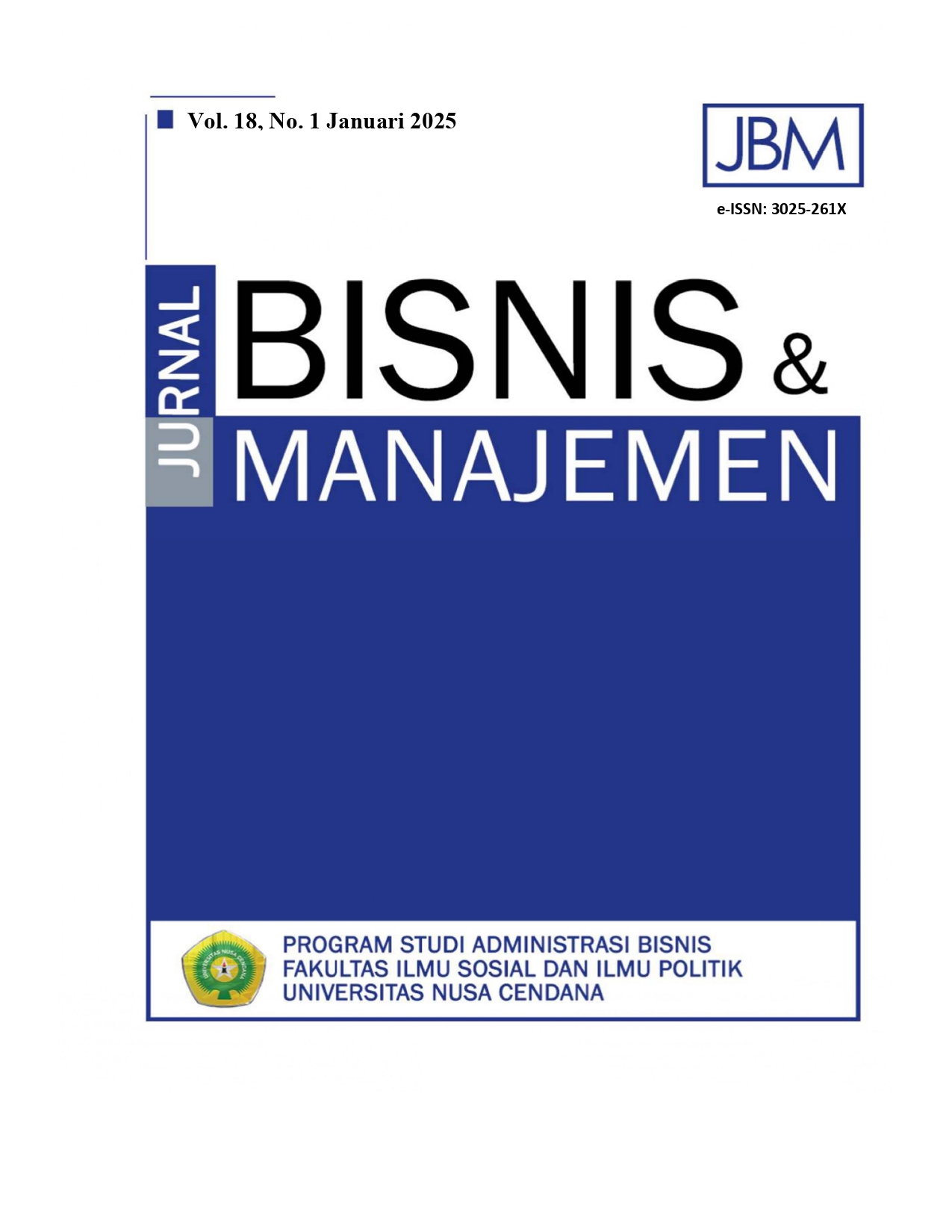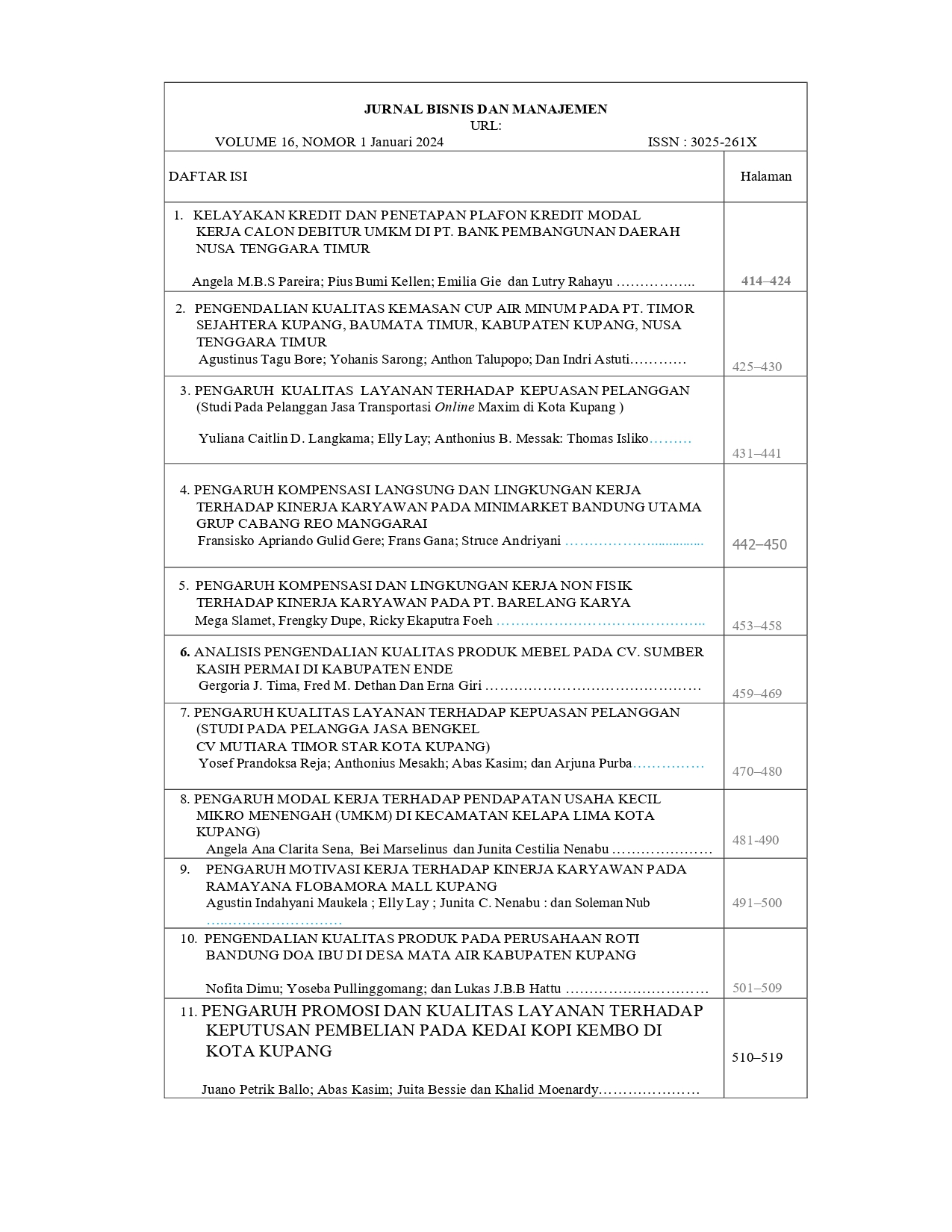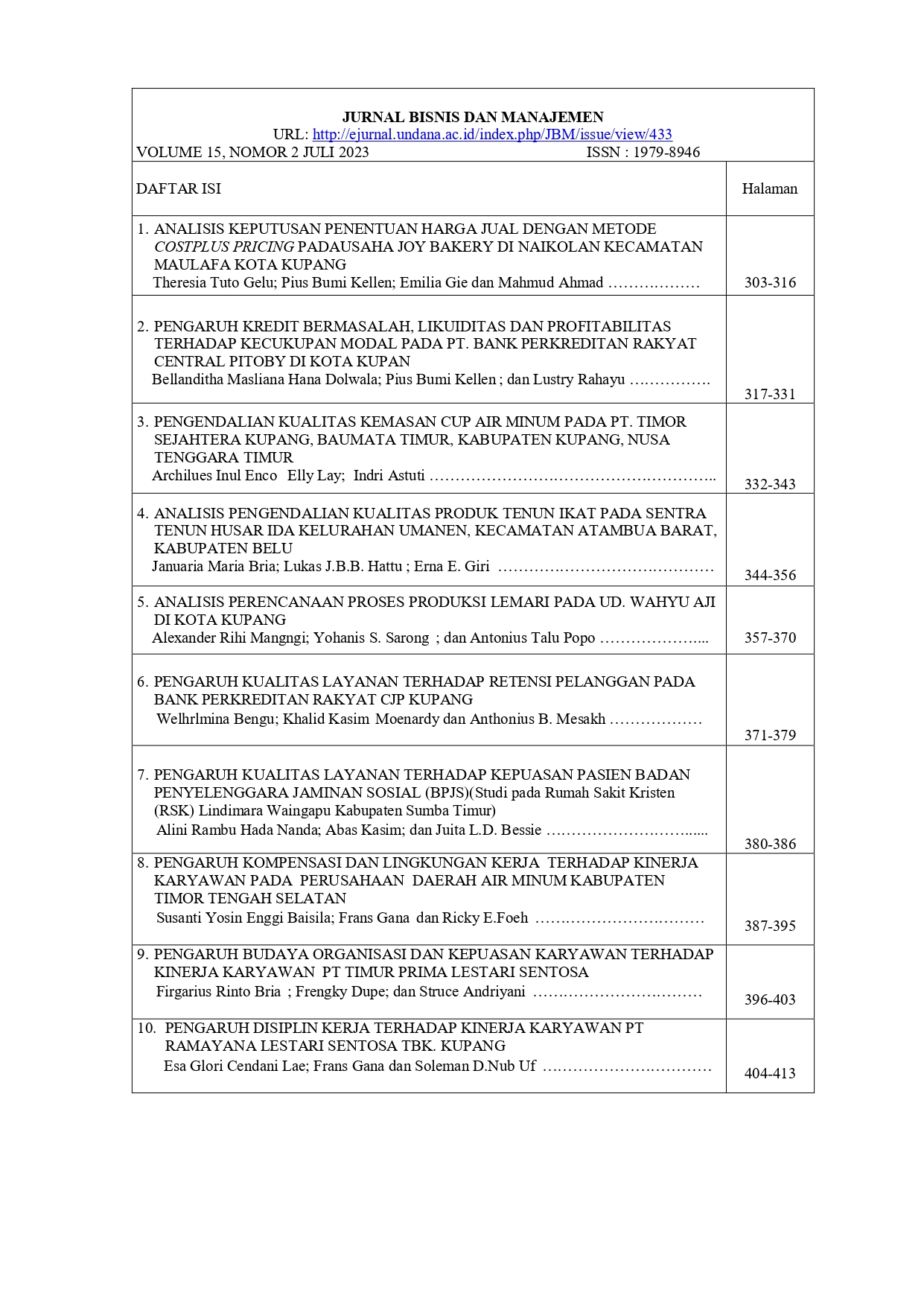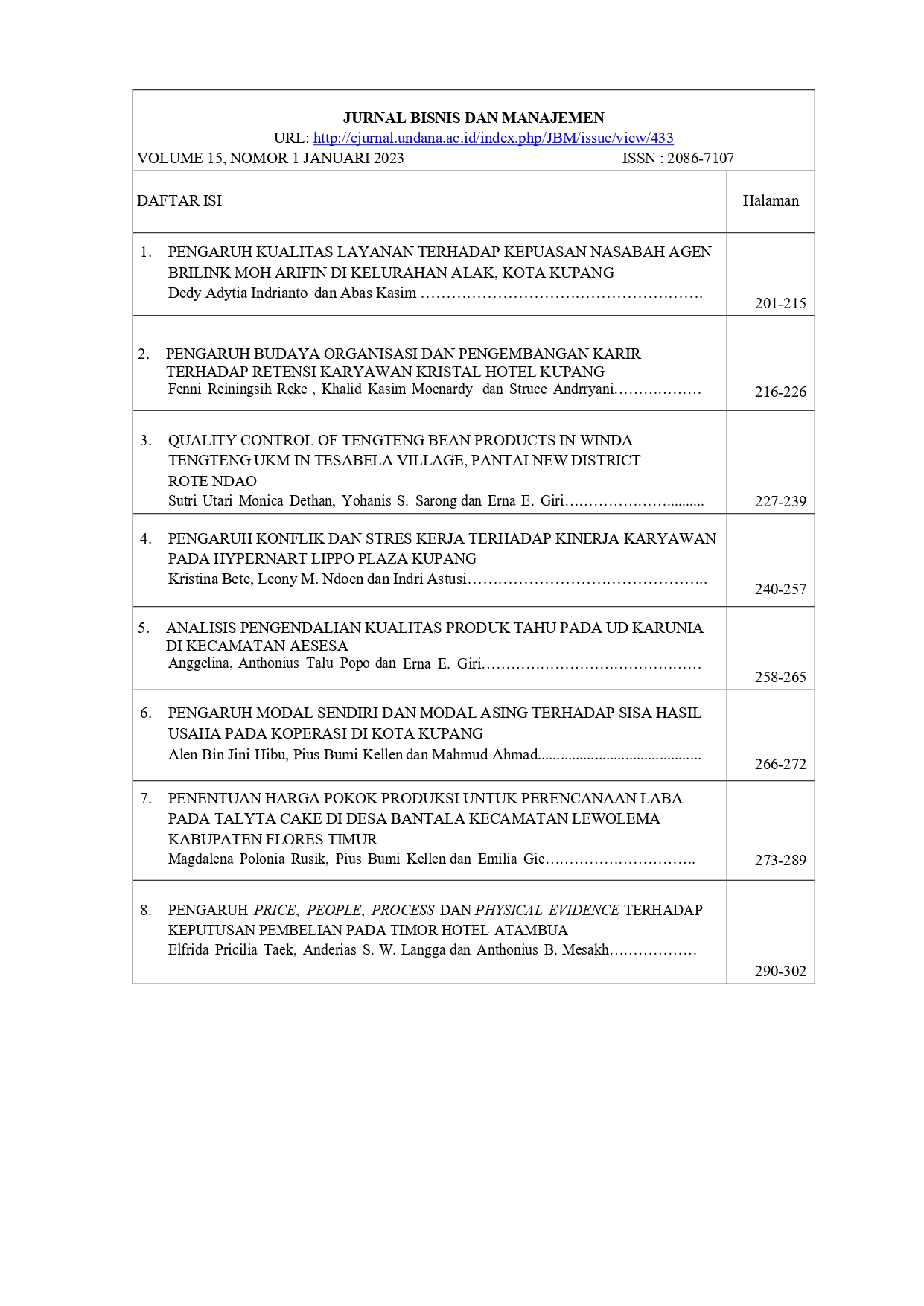PENGARUH KOMPENSASI DAN LINGKUNGAN KERJA NON FISIK TERHADAP KEPUASAN KERJA KARYAWAN PADA PT NINDYA KARYA CABANG OELKUKU
Abstract
This study aims to (1) Provide an overview of employees' responses regarding compensation, non-physical work environment, and job satisfaction at PT. Nindya Karya Oelkuku Branch. (2) Test and explain the effect of compensation on employee job satisfaction at PT. Nindya Karya Oelkuku Branch. (3) Test and explain the effect of non-physical work environment on employee job satisfaction at PT. Nindya Karya Oelkuku Branch. (4) Test and explain the effect of compensation and non-physical work environment on employee job satisfaction at PT. Nindya Karya Oelkuku Branch. To achieve these objectives, a sample of 53 respondents was selected at PT Nindya Karya Oelkuku Branch. Data collection was carried out using questionnaires, interviews, and documentation. The data analysis techniques used were descriptive statistical analysis and multiple linear regression analysis using SPSS V29. The results of this study indicate that compensation has an effect but is not significant on employee job satisfaction, as indicated by the t-value (1.899) > t-table (1.675) or significance value (0.063) > (0.05). The non-physical work environment variable is stated to have a positive and significant effect on employee job satisfaction, as indicated by the t-value (4.474) > t-table (1.675) or significance value (0.001) < (0.05). Furthermore, based on SPSS calculation results, the F-value > F-table (40.974 > 3.179), meaning compensation (X1) and non-physical work environment simultaneously affect employee job satisfaction (Y). Based on the determination coefficient test, it is known that the Adjusted R Square value obtained is 0.606 or 60.6%, which means that the compensation and non-physical work environment variables have a contribution of 60.6% to job satisfaction, while the remaining 39.4% is influenced by other variables. From the results of this analysis, PT Nindya Karya Oelkuku Branch is expected to continuously maintain and improve compensation and the non-physical work environment so that employee job satisfaction can be achieved efficiently and effectively.

 Gregoria Pas(1)
Gregoria Pas(1)





